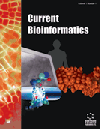-
oa Identification of Mitophagy-Related Genes in Sepsis
- Source: Current Bioinformatics, Volume 19, Issue 8, Oct 2024, p. 704 - 713
-
- 01 Oct 2024
Abstract
Background: Numerous studies have shown that mitochondrial damage induces inflammation and activates inflammatory cells, leading to sepsis, while sepsis, a systemic inflammatory response syndrome, also exacerbates mitochondrial damage and hyperactivation. Mitochondrial autophagy eliminates aged, abnormal or damaged mitochondria to reduce intracellular mitochondrial stress and the release of mitochondria-associated molecules, thereby reducing the inflammatory response and cellular damage caused by sepsis. In addition, mitochondrial autophagy may also influence the onset and progression of sepsis, but the exact mechanisms are unclear. Methods: In this study, we mined the available publicly available microarray data in the GEO database (Home - GEO - NCBI (nih.gov)) with the aim of identifying key genes associated with mitochondrial autophagy in sepsis. Results: We identified four mitophagy-related genes in sepsis, TOMM20, TOMM22, TOMM40, and MFN1. Conclusion: This study provides preliminary evidence for the treatment of sepsis and may provide a solid foundation for subsequent biological studies.


